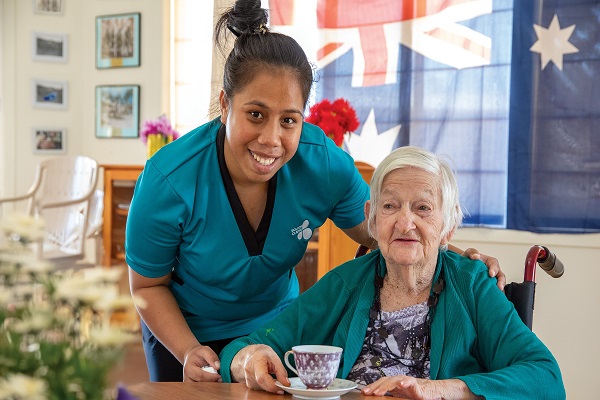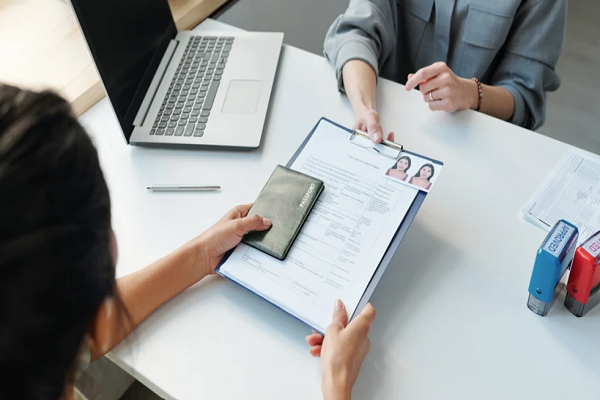Australia continues to attract skilled and unskilled workers from across the globe. Among the most in-demand opportunities are domestic jobs in Australia with visa sponsorship, providing a gateway for foreign workers to gain legal employment and long-term residency in a stable, well-paying job market.
Whether you’re a cleaner, nanny, caregiver, housekeeper, or support worker, this guide will help you navigate your way into Australia’s domestic labor market—with a focus on visa sponsorship pathways.
Introduction to Domestic Jobs in Australia
Domestic jobs in Australia refer to roles that support households and individuals with daily tasks and care. These can range from housekeeping, cooking, and cleaning to personal care, childcare, and elderly care.
As Australia’s population ages and more households require dual-income support, demand for reliable domestic workers is growing rapidly. Fortunately, many employers are now offering domestic job in Australia with visa sponsorship to address this labor shortage.
Why Domestic Jobs in Australia Are in Demand
Australia faces an increasing demand for home care and domestic support for several reasons:
- Aging population: More elderly Australians require at-home assistance.
- Busy urban lifestyles: Working families seek nannies and housekeepers.
- Increased immigration: New Australians often require domestic support.
- Shortage of local workers: Many Australians are reluctant to take up these roles, creating opportunities for foreigners.
The combination of these factors has created a robust market for domestic job in Australia with visa sponsorship.
What Is Visa Sponsorship in Australia?
Visa sponsorship means an Australian employer agrees to sponsor a foreign worker to live and work legally in Australia. This involves the employer applying to the Australian government to bring in a worker under a specific visa subclass. Workers applying for domestic jobs in Australia with visa sponsorship must find an approved employer who’s willing to undertake this process.
Types of Domestic Jobs Available
Here are the top domestic roles with visa sponsorship options:
1. Nanny or Au Pair
Responsible for child care and sometimes light housekeeping. Can be live-in or live-out.
2. Housekeeper
Duties include cleaning, laundry, meal preparation, and running errands.
3. Personal Care Assistant
Assists the elderly or disabled individuals with hygiene, medication, and mobility.
4. Home Support Worker
Supports daily living tasks like grocery shopping, cooking, and companionship.
5. Live-in Housekeeper
Provides 24/7 support to individuals, especially seniors or patients with chronic illnesses.
These jobs increasingly offer visa sponsorship to reliable and trained candidates.
Visa Pathways for Domestic Workers
The Australian government has outlined specific visa types that apply to domestic workers. Below are the most relevant:
1. Subclass 482 – Temporary Skill Shortage Visa (TSS)
Employers can sponsor skilled domestic workers if they can prove labor shortages. Requires at least two years’ experience.
2. Subclass 186 – Employer Nomination Scheme Visa
Permanent residency for workers nominated by an approved employer. Suitable for experienced domestic workers.
3. Subclass 408 – Temporary Activity Visa
Applicable for special programs, such as aged care or caregiving roles under agreements.
4. Subclass 820/801 – Partner Visa (with Domestic Roles)
In some cases, spouses of Australians working domestic roles can work while their visa is processed.
While these visa pathways aren’t always directly labeled for domestic roles, many employers in aged care, home care, and private households use them for domestic job in Australia with visa sponsorship.
Requirements to Apply for Domestic Jobs in Australia with Visa Sponsorship
Before applying, ensure you meet the minimum qualifications:
- Experience in housekeeping, childcare, or elderly care
- English language proficiency
- Relevant certifications like First Aid, Working with Children Check, or Manual Handling
- Police background check
- Willingness to work flexible hours or live-in
In some cases, formal education like a Certificate III in Individual Support (Aged Care)
Meeting these criteria increases your chances of landing a domestic job in Australia with visa sponsorship.
Where to Find Domestic Jobs in Australia with Visa Sponsorship
Several reputable platforms advertise domestic job openings, including those that offer visa sponsorship:
1. Online Job Boards
- Seek.com.au
- Indeed Australia
- Jora
- Workforce Australia
2. Agency Websites
- Aged Care Workforce Agencies
- Home Care Assistance Australia
- Care.com.au
- Smart Au Pairs
3. Recruitment Agencies
- HammondCare
- KinCare
- InterCare Staffing
- Healthcare Australia
Top Employers Offering Visa Sponsorship
Here are some known Australian employers that sponsor domestic workers:
- Home Instead Senior Care
- Baptcare
- Australian Unity
- Regis Aged Care
- Uniting Care
- Smart Au Pairs
- Anglicare Sydney
They frequently recruit caregivers, nannies, and personal support workers under visa sponsorship programs.
Salary Expectations for Domestic Jobs in Australia
Salaries vary based on experience, location, and job type:
| Role | Average Hourly Rate | Annual Salary (Full-Time) |
| Housekeeper | AUD $25–$35 | AUD $45,000–$60,000 |
| Nanny | AUD $22–$30 | AUD $40,000–$55,000 |
| Personal Carer | AUD $28–$40 | AUD $50,000–$70,000 |
| Live-in Caregiver | AUD $35–$45 (plus board) | AUD $60,000–$80,000 |
Visa-sponsored roles often come with added benefits like free accommodation, food, or paid training.
Benefits of Working a Domestic Job in Australia
- Pathway to Permanent Residency
- Attractive compensation and job security
- Comprehensive healthcare and worker rights
- Work-life balance and quality of life
- Opportunities for skill upgrade and certification
Many foreigners have transitioned from sponsored domestic jobs to Australian citizenship.
Challenges Foreign Workers Might Face
- Cultural differences
- Visa processing delays
- Limited mobility between jobs (bonded sponsorship)
- Potential for exploitation—hence always use legitimate agencies
- Language barriers
It’s important to educate yourself about your legal rights and select trustworthy employers.
Tips to Successfully Secure a Visa-Sponsored Domestic Job in Australia
- Tailor your resume to the Australian job market.
- Get certified in aged care or early childhood education.
- Highlight prior experience with children, elderly, or homes.
- Apply early and keep communication professional.
- Use LinkedIn and job portals for direct applications.
- Avoid scams by steering clear of employers who demand upfront fees.
- Be open to regional jobs, which are often easier to sponsor.
Frequently Asked Questions
1. Can I get a domestic job in Australia without experience?
Experience is highly preferred, especially if you’re applying from overseas. Some live-in roles may offer training.
2. How long does it take to get a sponsored visa?
Processing time varies. Subclass 482 can take 1–3 months, while permanent options may take longer.
3. Is sponsorship guaranteed for all jobs?
No. Only registered employers approved by the Department of Home Affairs can offer visa sponsorship.
4. Can I bring my family on a sponsored visa?
Yes, most sponsorship visas allow dependents, especially for longer-term visas.
5. Do I need IELTS for domestic jobs in Australia?
Yes. Most sponsored visas require at least functional English—often proven through IELTS or equivalent.
Conclusion
Landing a domestic job in Australia with visa sponsorship can be life-changing. With Australia’s rising demand for home support services, more employers are opening doors to international workers ready to commit to reliable, caring service. By understanding the visa pathways, knowing where to apply, meeting the qualifications, and preparing a solid application, you can turn this opportunity into a new beginning.
Whether you’re a caregiver from the Philippines, a housekeeper from Nigeria, or a nanny from India, your skills are not only valuable—but highly needed in the Australian domestic workforce. Explore, apply, and take the first step toward your Australian dream today.
References
Australian Department of Home Affairs: https://immi.homeaffairs.gov.au
SEEK Australia: https://www.seek.com.au
Home Care Assistance Australia: https://homecareassistance.com.au
Australian Fair Work Ombudsman: https://www.fairwork.gov.au






